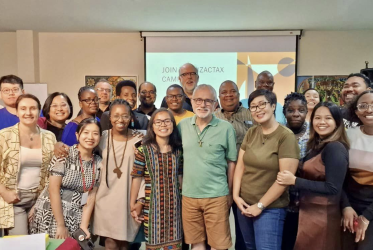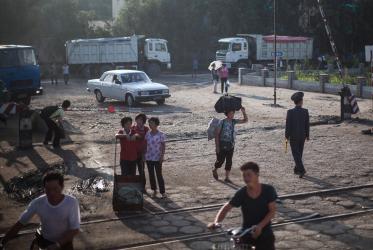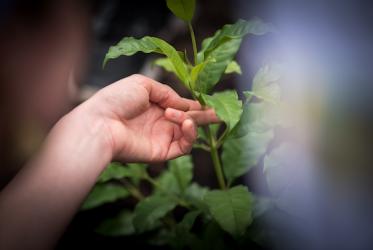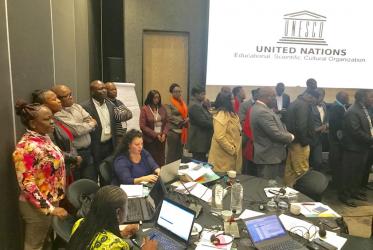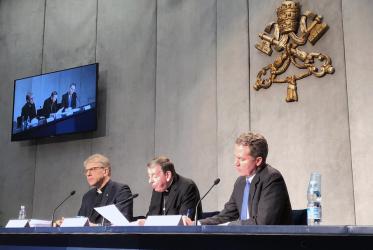Displaying 1 - 20 of 62
08 September 2023
WCC mourns passing of Hendrew Lusey-Gekawaku
23 October 2020
Church of South India eco-ministry featured on UNESCO website
17 February 2020
Greenland’s grand Gospel preacher
07 February 2020
Youth leaders: “We will stop at nothing” to end HIV and violence
17 October 2019
A humble servant in God’s herd
10 July 2019
“There are no spare parts for whales”
13 June 2019
Dealing with traumas and healing of wounds
04 June 2019
Knowledge of gender roles deepens in Togo
03 June 2019
Faith and HIV treatment go hand in hand
06 March 2019
WCC hones training on attitudes toward HIV treatment
06 December 2018
